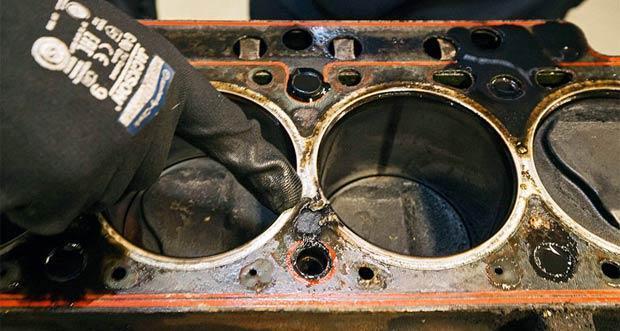
Can I drive without antifreeze?
Content
What happens if you drive without antifreeze?
The coolant is designed to remove excess heat from overheated parts of the engine and generally maintain the operating temperature of the engine, which for different car models ranges from about 85 to 97 ºС.
The engine warms up unevenly. Cylinders and pistons with rings, valves and part of the cylinder head in the exhaust manifold area are heated most of all. It is here that the metal comes into contact with the flame from the combustion of fuel and hot gases. While the rest of the engine warms up less intensively.
The absence of antifreeze in the system will lead to three destructive factors at once.
Firstly, without heat removal, the metal of the parts of the cylinder-piston group and the crank mechanism will be heated until it approaches the thermal strength limit. At a certain temperature, close to the yield strength, the hardness of the metal will begin to decrease like an avalanche. And in this situation, even small contact loads will lead to mechanical deformations.
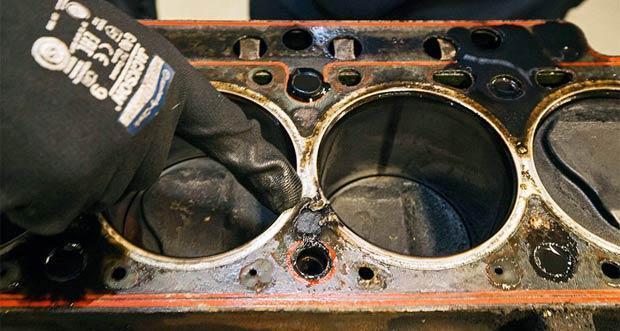

Secondly, uneven heating of all-metal parts (cylinder head, cylinder block, pistons, etc.) can lead to an excessive increase in internal stresses: thermal deformation and even the appearance of cracks.
Thirdly, in the absence of antifreeze, the function of heat removal and its distribution throughout the motor will be taken over by oil as the only liquid remaining in the system. It already performs this role during normal engine operation, but to a small extent. When the cooling system is empty, the oil will begin to overheat and decompose, losing its working properties and forming sludge deposits.
Therefore, in the general case, the answer to the question of whether it is possible to drive without antifreeze is unequivocal: it is impossible.
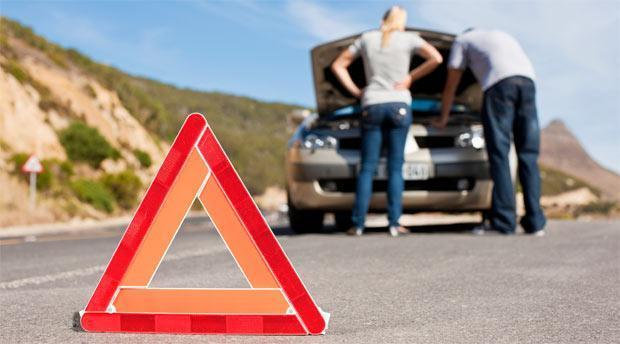

How far can you drive without antifreeze?
Without antifreeze, you can drive some distance until critical engine damage occurs. This distance (or operating time) is individual for each individual motor and the conditions under which this motor is forced to run without antifreeze.
Consider several factors that affect how long the engine can go to failure in the absence of antifreeze.
- Engine design. What matters is the massiveness of the parts, the material of manufacture of the cylinder head and cylinder block, the type of power supply and the degree of forcing. Old naturally aspirated engines of large mass, with thick walls and a cast-iron block and cylinders will be more resistant to elevated temperatures. It is difficult to say how hardy such engines will be in the event of a coolant leak. However, it is unlikely that the score will go to tens of minutes. Thin-walled aluminum motors of modern cars are unlikely to last longer than 1-2 minutes in the absence of antifreeze without serious consequences.
- Ambient temperature. In winter, the engine will be able to work longer without antifreeze, as cold air will more intensively carry away heat from a heated engine.
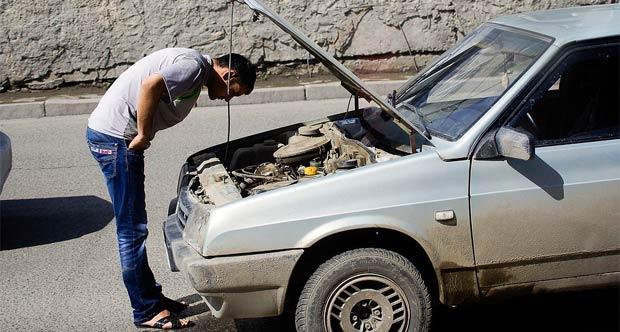

- Motor operating mode. At idle or when driving without load, the engine will last longer. Fuel in these modes burns less, so the heat load will be lower.
- Engine condition. A motor with low mileage, on the one hand, can travel more, since all its components are in relatively good condition. At the same time, it is easier for an exhausted engine to endure overheating and thermal expansion of parts without jamming.
It is difficult to say how long you can drive without antifreeze. There are too many variables in this question that no one has been able to reduce into one equation today. We can say with certainty only one thing: if you start the engine without antifreeze from a completely cold state, then it is guaranteed that it will drive no more than 500-1500 meters without consequences. Further - a matter of chance.


Watch this video on YouTube
Is it possible to drive without antifreeze in winter?
The issue of winter driving without antifreeze is also relevant. It is not uncommon for the coolant in the cooling system to freeze. And sometimes water not drained to frost simply breaks the radiator. How to be, is it possible to drive in winter without coolant?
Here, too, the answer is unequivocal: no. To drive a short distance in order to move the car from an uncomfortable place to a more suitable parking lot or drive it to the nearest service, most likely, it will turn out without consequences. However, driving constantly without antifreeze on a water-cooled engine, even in severe winter, will not work.
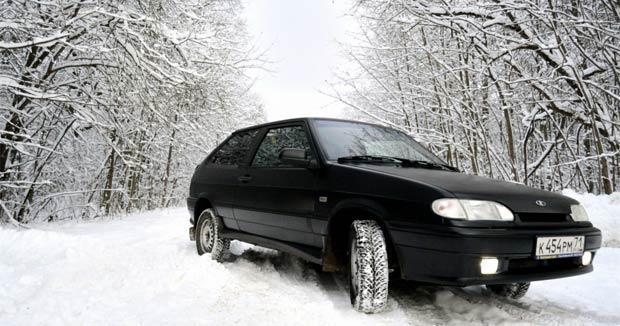

Some will now remember air-cooled engines, as, for example, on domestic motorcycles from the times of the USSR or Zaporozhets cars. But here the situation is completely different. Motors were originally made massive, from an alloy that conducts heat well. For more efficient removal, the designers installed special castings on the cylinders, the so-called cooling fins. And at the same time, channels for air supply were made in the engine compartment, which were supposed to provide continuous airflow to the engine.
Liquid-cooled motors must not be operated with a faulty cooling system, even in winter. On a car with such a problem, you can only drive a minimum distance. But it is better to use the services of a tow truck or transport the car on a tow rope.


Watch this video on YouTube
